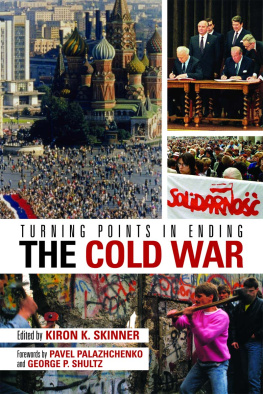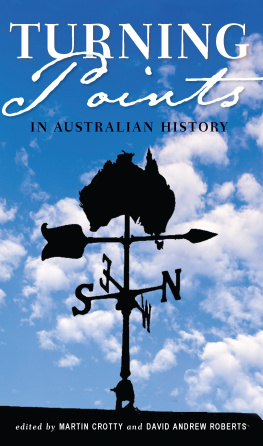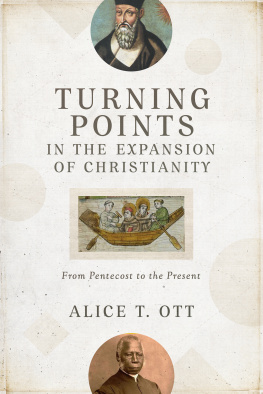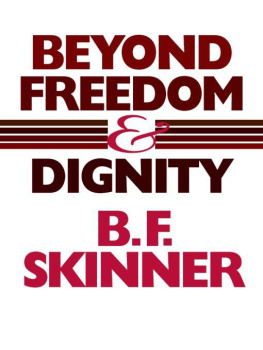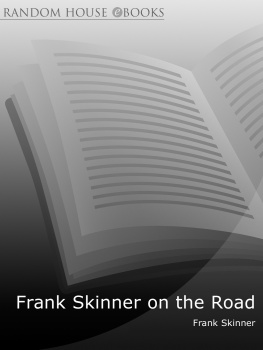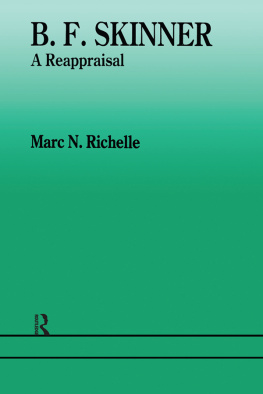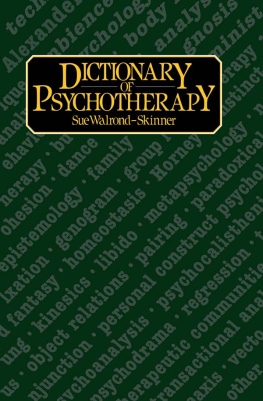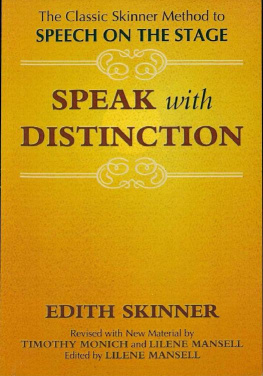The Hoover Institution on War, Revolution and Peace, founded at Stanford University in 1919 by Herbert Hoover, who went on to become the thirty-first president of the United States, is an interdisciplinary research center for advanced study on domestic and international affairs. The views expressed in its publications are entirely those of the authors and do not necessarily reflect the views of the staff, officers, or Board of Overseers of the Hoover Institution.
www.hoover.org
Hoover Institution Press Publication No. 538
Copyright 2007 by the Board of Trustees of the
Leland Stanford Junior University
All rights reserved. No part of this publication may be reproduced, stored in a retrieval system, or transmitted in any form or by any means, electronic, mechanical, photocopying, recording, or otherwise, without written permission of the publisher.
First printing, 2007
14 13 12 11 10 09 08 07 9 8 7 6 5 4 3 2 1
Manufactured in the United States of America
The paper used in this publication meets the minimum requirements of the American National Standard for Information Sciences
Permanence of Paper for Printed Library Materials, ANSI Z39.48-1992.
Library of Congress Cataloging-in-Publication Data
Turning points in ending the Cold War / edited by Kiron K. Skinner.
p. cm. (Hoover Institution Press publication ; no. 538)
Includes bibliographical references and index.
ISBN-13: 978-0-8179-4631-9 (cloth: alk. paper)
ISBN-13: 978-0-8179-4632-2 (pbk.: alk. paper)
1. Cold War. 2. Soviet UnionForeign relationsUnited States.
3. United States-Foreign relations-Soviet Union. 4. Soviet Union-Foreign relations 19751985. 5. Soviet Union-Foreign relations 19851991. 6. United States-Foreign relations19811989.
I. Skinner, Kiron K. II. Series: Hoover Institution Press publication; 538.
D849.T893 2006
327.4707309048dc22
2006008247
FOREWORD
Pavel Palazhchenko
A Perspective from Moscow
T HERE IS LITTLE DOUBT that the period we call the cold war, including the way it was waged and the manner in which it ended, will attract the keen interest of historians for many decades to come. It was a unique and unprecedented era in that the threat of a major conflict, very likely involving the use of nuclear weapons, was real, or was at least clear and present in the minds of those who ducked under tables during civil defense alerts and lived through the terror of the Cuban missile crisis. There is much that needs to be clarified and understood about the cold wars origins and causes. For example, a question that deserves serious consideration is whether the cold war was inevitable because of the nature of the Soviet regime or whether it could have been avoided with a different interpretation of the doctrine of containment. Perhaps of even greater interest is the question of why the cold war ended and whether other scenarios of its end were possible. Though the unique circumstances that brought about the cold war are unlikely to be repeated, it would be hard to deny the importance of considering such questions and thereby learning lessons for the future.
Debates about the cold war and the way it ended are inevitably clouded by the politics of the day. In Russia, the collapse of the hopes of the intelligentsia, who had expected radical changes following the breakup of the Soviet Union to result in almost overnight prosperity and a major role for Russia in a new world order, has led many to question the disengagement from the cold war. The Russian press is rife with writings accusing Mikhail Gorbachev and his foreign minister, Eduard Shevardnadze, of having betrayed Russias national interests, even though Russia as a separate entity under international law did not exist on their watch. In the United States during the administration of the first President Bush, the general consensus of welcoming the peaceful end of the cold war was soon replaced by the celebration of the Westsand most particularly Americasvictory in the cold war. This, in turn, reinforced the feelings of inferiority and injury felt by many members of the Russian establishment, feelings that are not conducive to a sensible debate either about the past or about Russias present foreign policy.
Depoliticizing the study of the cold war would only benefit the discussion, and although it may not be possible in current media debates, one would hope that historians would at least strive for this goal. Something else would also help: we should bear in mind that the notion of the cold war is, after all, a metaphor that captures the confrontational aspect of that period but is not, and cannot be, its full and accurate description. Much of the inaccurate and un-helpful loose talk about the cold war and its end is, in fact, the result of either unfamiliarity with the facts and the documentary record or taking the metaphor too literally. It was not, after all, a war. In fact, preventing war was perhaps the essence of that period and was of greater importance and concern to its protagonists than preparing for war or winning the various battles or skirmishes, whether in propaganda or geopolitics, that occupied so much space in the press of that time. War prevention as a substantive aspect of the cold war has only recently begun to receive sufficient attention from historians.
Contributions to the cold wars historical record by former Soviet and U.S. officials who were active during the various phases of that era are invaluable. Much credit is due to the conferences, books, and oral history interviews that aim to develop the factual basis for further study and debate. An example is the recent Cuban missile crisis conference held in Havana and attended by former U.S., Soviet, and Cuban political and military officials. We can be grateful for the efforts to make available documents from the cold war years from both the U.S. and the Russian sides, yet it is unlikely that a large body of such material will soon become accessible to historians. A more realistic possibility is that participants in the making and implementation of policies on both sides will speak and write about their recollections, as some of them do in the present book. As a Russian, I only regret that such literature is being published more in the United States than in my own country, but in any case, the fact that a significant body of evidence is gradually emerging is positive and welcome. Much of what follows in this foreword is based on my recollections of the events that I witnessed and participated in from 1985 to 1991 and then recorded in My Years with Gorbachev and Shevardnadze, published in the United States in 1997.
The phrase turning points, as used in the title of this book, is another metaphor. Though it has often served to describe the events surrounding the end of the cold war, perhaps an even better metaphor would be going forward, for it is this relentless movement away from the past that stands out as we recall that era. There was not so much a turn in a particular direction, for the direction stayed basically the same, as a refusal to go back despite frequent temptations to do so.
Since it is often asserted, particularly in Russia, that the West alone benefited from the end of the cold war, it would be useful to consider the benefits that accrued to the Soviet Union and its successor states by first taking a look at the international position that Gorbachev inherited from his predecessors. In the early 1980s, the Soviet Union was saddled with an astounding range of foreign policy problems. It found itself in a situation that could almost be described as us against the world. Its relations were confrontational with the United States; tense, at best, with Europe; and downright hostile with China. The unsuccessful war in Afghanistan was having a destructive effect on both the domestic situation and relations with the West and much of the rest of the world. The country was bogged down in several regional conflicts in third world nations with little hope of extricating itself from them. The USSR had no real friends, and the Soviet elite knew only too well that the Warsaw Pact countries could not be regarded as reliable allies. The Soviet Unions negotiating position in arms control talks reflected a sense of isolation, insecurity, and pervasive hostility. In the INF talks, for example, the Soviet delegation initially asked to be allowed the same number of weapons as all its potential adversaries put together.



